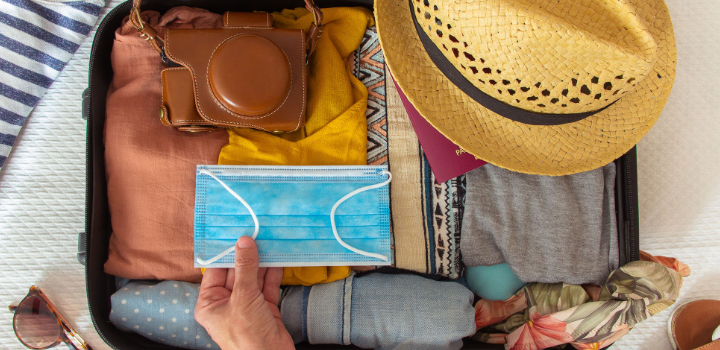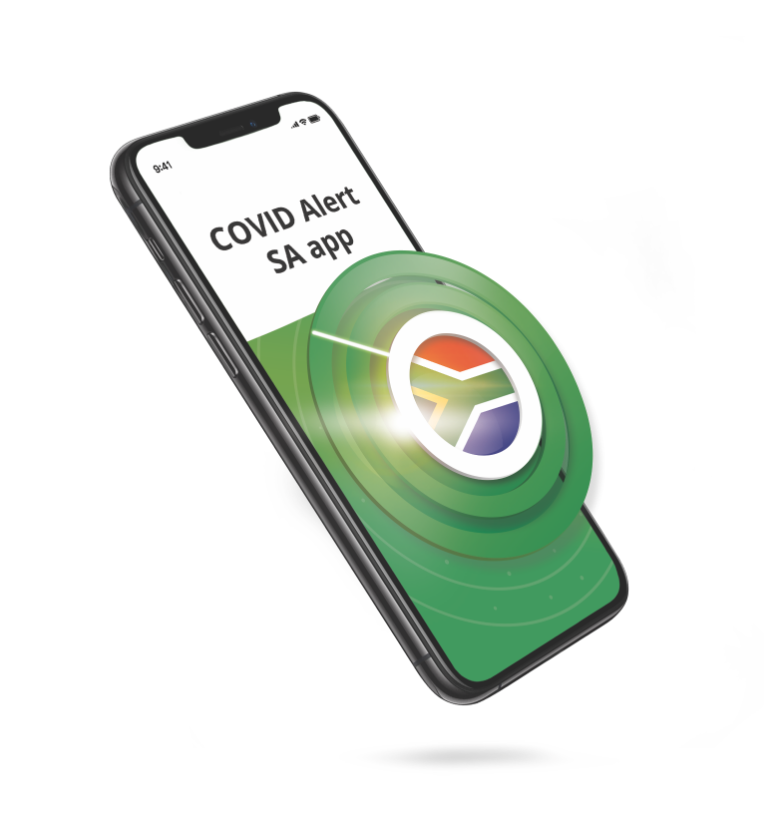How savvy are you about staying safe this holiday season?

Exhausted people all over South Africa are looking forward to well-earned time out, either at home or at a holiday destination. What does it mean to holiday and travel safely in the time of a global pandemic?
How well do you understand what it means to socialise, travel and holiday safely during alert level 1 lockdown this holiday season coming up? With domestic travel between provinces now open, how can South Africans keep each other safe from COVID-19 as we move through the country over the holidays?
We want to connect and socialise with each other - but at what cost?
Of course with the festive season approaching it is understandable that we will want to be with family and friends," said President Cyril Ramaphosa in a national address last year. "It has been a stressful and traumatic year. We want to socialise and connect with each other." However, he hastened to add:
- This doesn't mean we should let our guard down.
- We must remember that every additional person we come into contact with increases the chances of transmission.
- We should avoid large gatherings.
- We should rather meet in small groups.
- If we must go out, we should limit contact with others.
This was valid then and still is now. We need to stay safe and stay home this holiday season. The choices you make today can determine the impact of the third wave of COVID-19 infections.
Your choices while on holiday (and at all times) determine our country's future
Globally, a rise in infections in some countries has led to the reimposition of tough restrictions and lockdown conditions, dashing hopes for a swift economic recovery in those regions.
"We must do everything we can to prevent this from happening in our country," says Dr Noluthando Nematswerani, Discovery Health's Head of the Centre for Clinical Excellence. "It's so important that we do not let down our guard over the holiday season, a time when people may tend to become complacent regarding preventive measures that protect them and others from exposure to COVID-19."
"In March, South Africa is recording close to 600 new COVID-19 infections daily, so we must continue to be cautious. Let's work together to avoid a third wave of COVID-19 infections in our country," she adds. "The same rules that applied in the early days of the lockdown apply now."
Stick to the basics that keep you and everyone else safe
"By now, we should be well versed in the World Health Organization's recommended guidelines to prevent the spread of COVID-19 as much as possible," says Dr Nematswerani.
Here's a summary:
- Wear a mask and avoid touching it once it's on.
- Ensure you wear your mask over both your nose and mouth. If it slips down under your nose, the exposure risk for those around you is the same as though you've taken it off.
- Avoid touching your eyes, mouth and nose.
- Keep a physical distance of 1.5 metres or more between you and others.
- Wash your hands with soap and water and use an alcohol-based sanitiser when soap and water are not available.
- Cough etiquette is key: When you cough or sneeze, cover your mouth and nose with a flexed elbow or tissue. Throw away the tissue immediately and wash your hands.
- If you are considered at high-risk of severe illness if you contract COVID-19, seek a healthcare provider's advice regarding travel over the holiday period and ensure you adhere to preventive measures to limit your exposure to COVID-19.
- Keep in mind that high-risk individuals are those people who are over the age of 60, or those who have underlying chronic illnesses such as diabetes, hypertension and those who are immunocompromised due to illness (such as cancer or HIV) or as a result of medicine that they are taking (such as transplant recipients).
The image below recognises that no single intervention is perfect at preventing the spread of COVID-19 - multiple layers improve success.

What should you do if you feel sick or have symptoms suggestive of COVID-19 - whether you're at home or away on holiday?
- Don't travel if you have symptoms that suggest you have COVID-19, or if you have a laboratory-confirmed case. This is to prevent the potential spread of infection to others and possible deterioration of your symptoms as a result of stress while traveling. Your body needs adequate rest for you to recover.
- Keep in mind: a COVID-19 diagnosis can only be confirmed using approved diagnostic tests. A healthcare professional should guide you through the testing process.
- Keep in mind: these tools are available to anyone in South Africa and accessible for free, at any time.
- Remember to stick to these preventive measures even if you have had COVID-19. We don't know enough about immunity to the disease yet to say that people who have had it are safe from getting it again. And we always remain at risk of spreading the virus from commonly touched surfaces to people.
- Please note that antibody test results cannot provide any form of reassurance about whether you may or may not get the infection again. Always seek guidance from a healthcare professional regarding the appropriate type of test and the interpretation of test results.
Keep in mind: Free online resources connect you to the help you need
No matter the time of day or where you're located, you can access a free 'COVID-19 risk assessment' through the Discovery website. You can input your symptoms online and, if found to be at high risk for possible COVID-19 infection, you will be connected to doctors for an online consultation - a convenient way to speak to a doctor at any time or place. You can access this no matter where you find yourself this December.
What should you do if you have been in contact with someone who has COVID-19?
- If you have been in close contact with someone who has COVID-19, or are experiencing any symptoms that suggest you have COVID-19, you must stay home and avoid contact with others for at least 14 days to limit the potential spread of infection to others. Remember that a significant number of people who contract COVID-19 do not experience symptoms, but can still spread the virus to someone else.
- Close contact means that you have had face-to-face contact (been within one metre of someone) or were in a closed-in space for more than 15 minutes with a person who has COVID-19. Monitor yourself for symptoms during the days that follow your episode of contact.
You have a powerful protective device in your hand - are you using it?
By mid-November 2020, 700 000 South Africans were already using the COVID Alert SA app, the country's national Bluetooth contact-tracing app.
Are you one of them?
"This user-friendly app ensures absolute privacy but still keeps every user notified, in as close to real time as possible, about their exposure to COVID-19. The app does not track location and app users are all 100% anonymous," explains Dr Nematswerani.
"In a nutshell, the app lets users know when they have been in close contact with another app user who has tested positive for COVID-19. When someone tests positive for the disease, it's important to let those with whom they have been in close contact with over the past 14 days know, in case they have also contracted the disease but are not yet experiencing symptoms. Usually, the problem is that people who contract COVID-19 will never remember, let alone be able to provide contact details for strangers they were close to on public transport or at a social event. The app overcomes this simply by keeping a digital memory of the time that smartphones using the app have spent near each other via Bluetooth signals, which we all use daily to connect Bluetooth-enabled devices. The identity of the smartphone user is never required. All that the app tracks is contact between smartphones. It's that simple."
- Did you know that the app is only 3 MB and the data to use the app has been zero rated by all mobile networks so it won't cost you anything to use it? Once you download it, the app runs in the background (and will not affect your phone's battery life).
- Read all about the COVID Alert SA app

Want to know more about staying safe this holiday period while you enjoy a well-deserved break?
- Article 2 in this series of 3: What you need to know to safely meet with your loved ones over the holidays
- Article 3 in this series of 3: How can you limit your exposure to COVID-19 when travelling, staying at a hotel or shopping over the holidays?
Haven't driven very much this year and contemplating getting back out there safely? Or, want to know other options for safe travel on our roads? Here are 5 tips for getting safely back onto SA's roads this Festive Season and details on Vitality Drive's Drive Me benefits.

